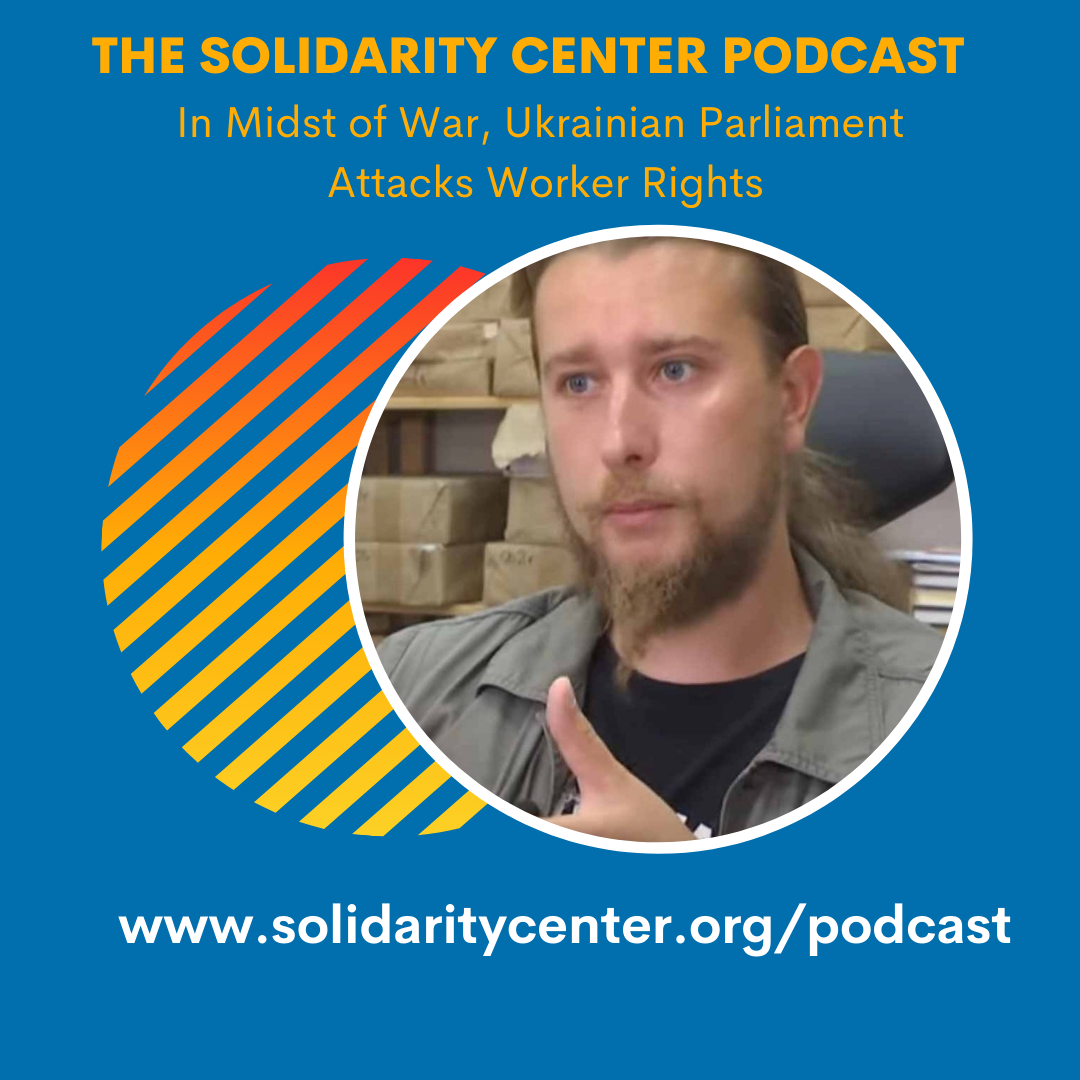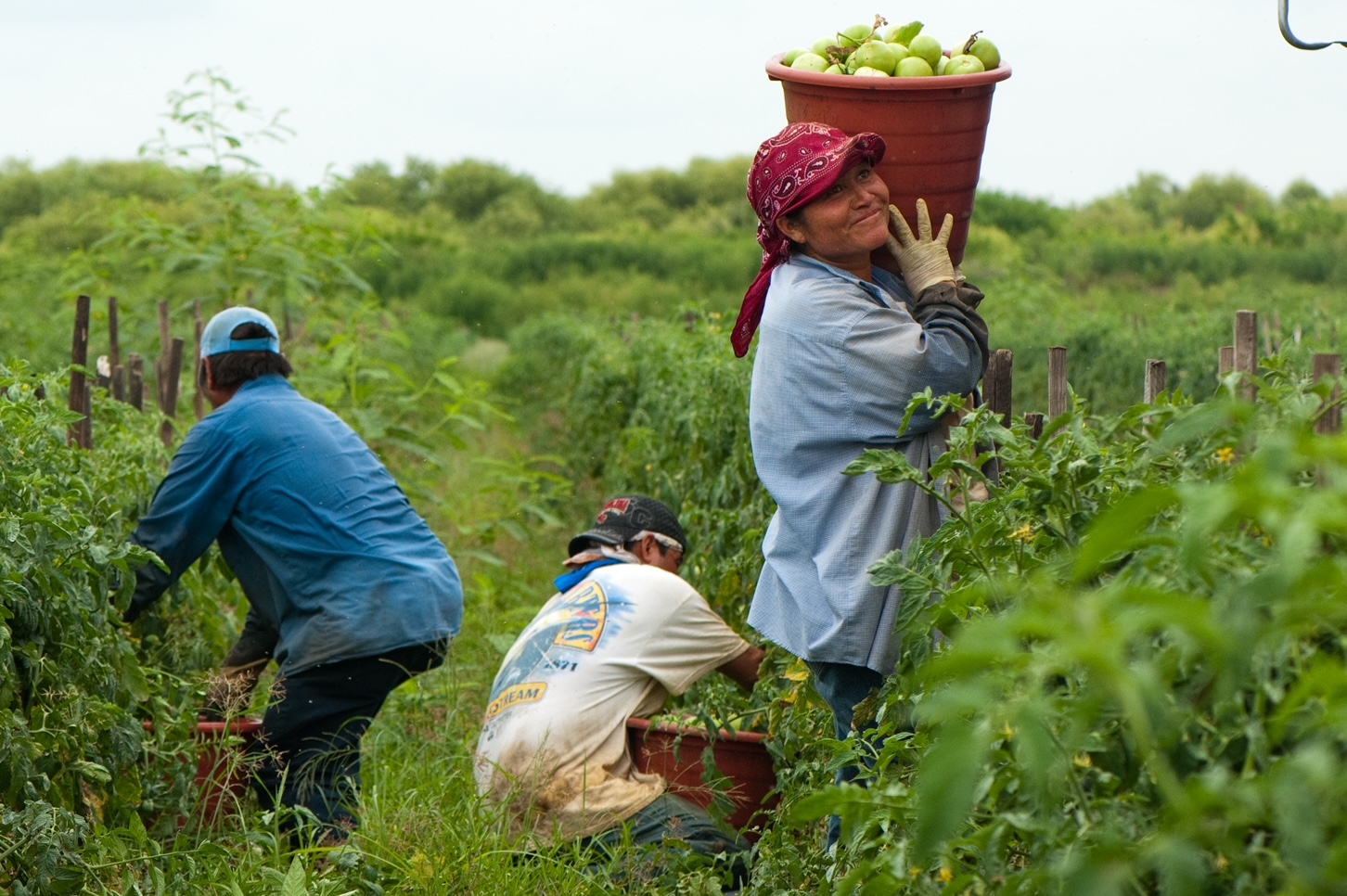Even as war rages in Ukraine, with daily bombings, food and medicine shortages and tens of thousands of displaced people crowded in cramped public spaces, the Ukrainian Parliament recently passed a series of laws that attack workers’ basic rights on the job and...
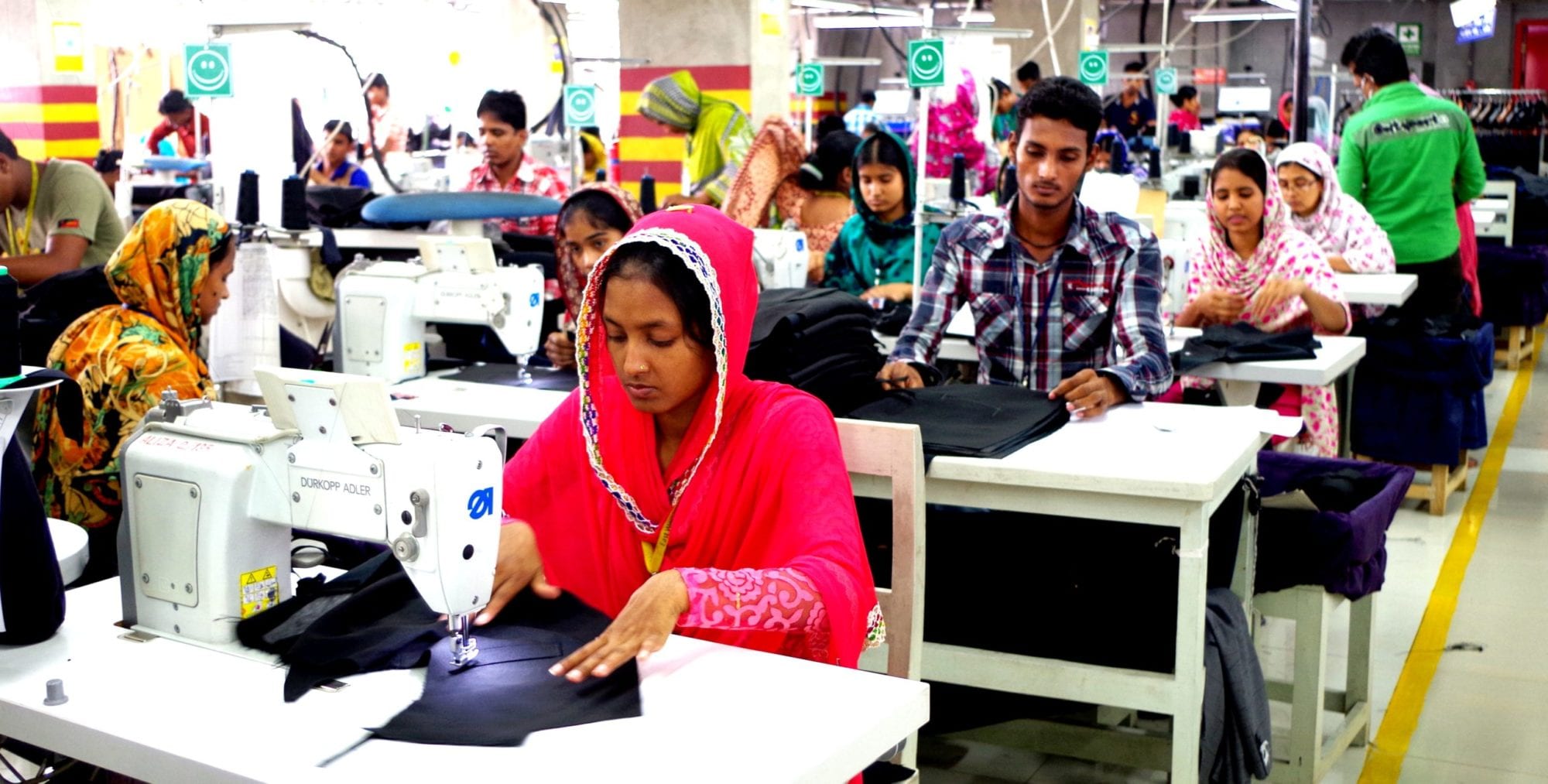
The Solidarity Center works to ensure all workers, such as Bangladesh garment workers, have access to their legal workplace rights. Credit: Solidarity Center/Balmi Chisim
The Solidarity Center works to ensure that all workers have rights protected under international law and have access to effective legal remedies if those rights are violated.
The Solidarity Center works with workers, unions and other organizations around the world to rewrite the rules so workers can form unions and take collective action to promote their rights and be free from exploitation. The Solidarity Center has assisted workers and unions in countries such as Bangladesh, Cambodia, Guatemala, Myanmar, Thailand and Ukraine to analyze legislation and develop strategies to defeat repressive legislation and promote laws and regulations consistent with international law.
Our work supports novel litigation at the national and regional levels to expand rights to workers and unions. For example, the Solidarity Center has supported constitutional litigation to ensure domestic workers in South Africa have access to the national workers compensation fund, and is working with lawyers in Bangladesh to support workers in challenging the use of false criminal charges to dismiss and silence workers. The Solidarity Center also supports efforts in regional human rights courts to promote the rights of informal economy workers in Africa and to hold governments accountable for anti-union violence in the Americas.
The Solidarity Center also is working to build accountability for multinational firms in global supply chains that remain largely beyond the reach of the law in countries where their suppliers are located and in their home countries. The lack of accountability is a major driver of worker exploitation in supply chains, including wage theft, unsafe workplaces, violence against workers and attacks against unions.
Educating workers on their rights and how to use them in the workplace is also a key component of our work. Through the International Lawyers Assisting Workers Network (ILAW), we are building a legal community and increasing the capacity of lawyers and activists to effectively use domestic, regional and international laws and institutions. The ILAW Network brings together more than 400 lawyers in some 55 countries.
Experts Share Strategies for Stopping Wage Theft of Migrant Workers
A significant number of migrant workers worldwide are not paid for work performed, and legal remedies to recover them are few. But new policies have proven effective in ensuring migrant workers are treated fairly, a global panel of experts said yesterday. “Paying...
Podcast: Now Imprisoned, Belarus Union Leader Spoke of Hopes for Democracy
In April, at least 18 union leaders were recently arrested in Belarus, where an autocracy has run the country since the fall of the Soviet Union. Among those arrested was Sergey Antusevich, vice president of the Belarusian Congress of Democratic Trade Unions, who was...
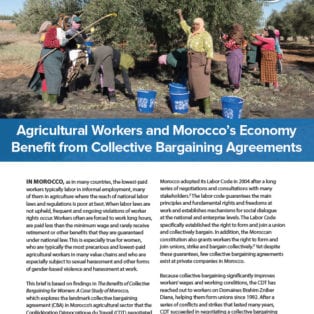
Agricultural Workers and Morocco’s Economy Benefit from Collective Bargaining Agreements
. Download in English Download in Arabic. This report was made possible through the generous support of the Ford Foundation.
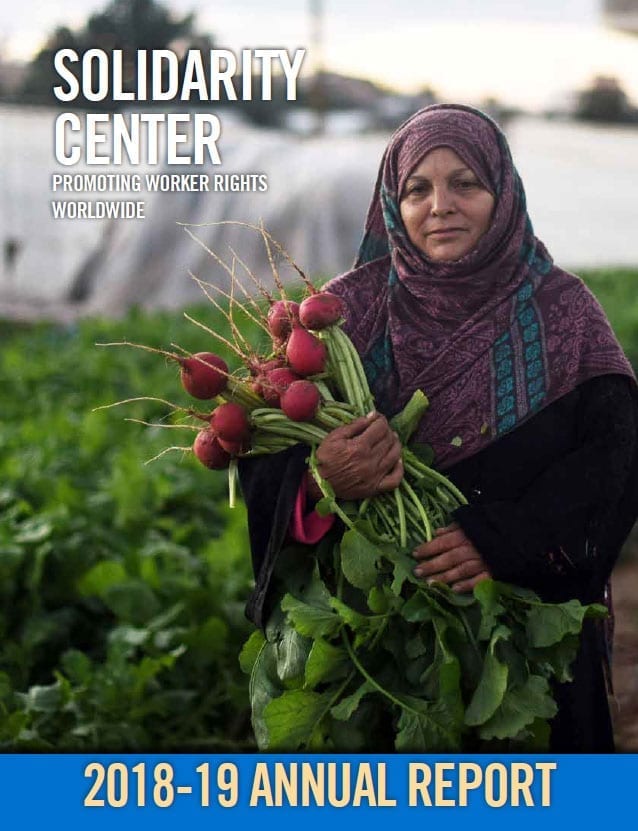
Annual Report, 2018–2019
Download here.
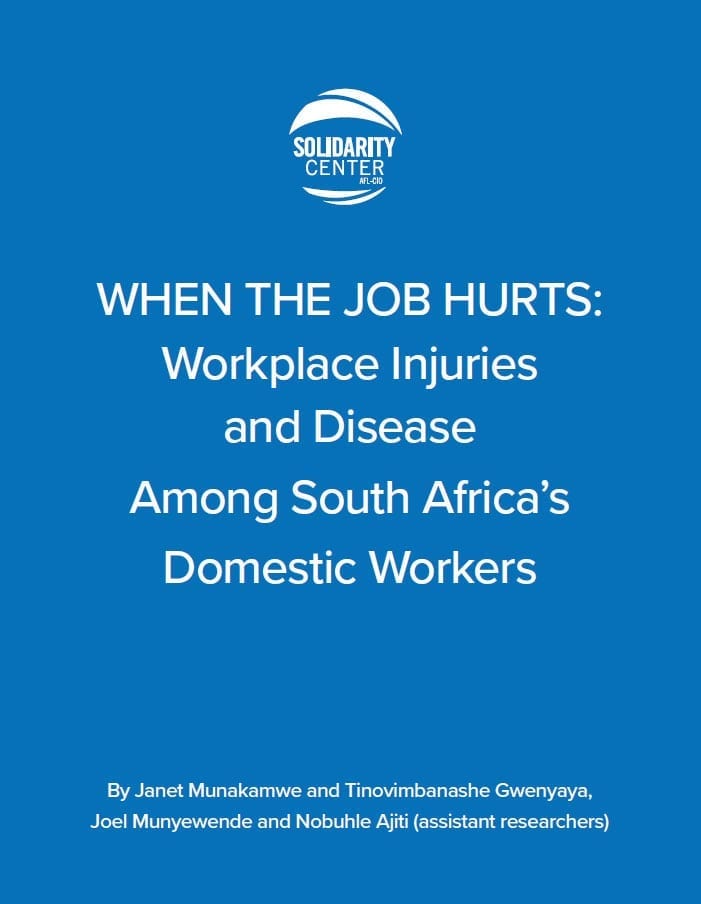
When the Job Hurts: Workplace Injury and Disease among South Africa’s Domestic Workers
Through individual case studies and legal analysis, When the Job Hurts demonstrates the need for domestic workers in South Africa to receive the same coverage under the country's job safety and health compensation law as other workers. Download report.
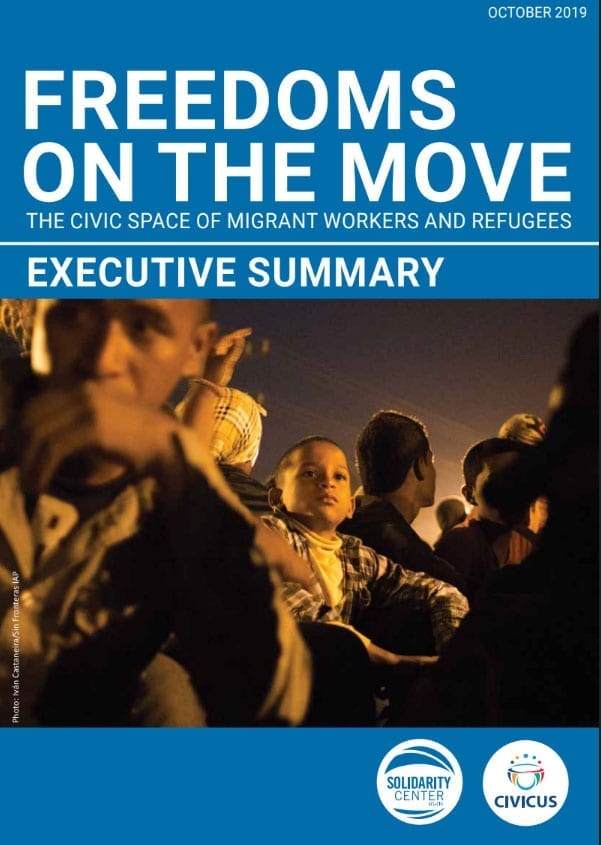
Freedoms on the Move: The Civic Space of Migrant Workers and Refugees
Freedoms on the Move, a new report by Solidarity Center and CIVICUS, makes clear that many migrant workers and refugees want to have a say in their communities and their workplaces, and in the decisions that affect their lives—and is an urgent call to action for...
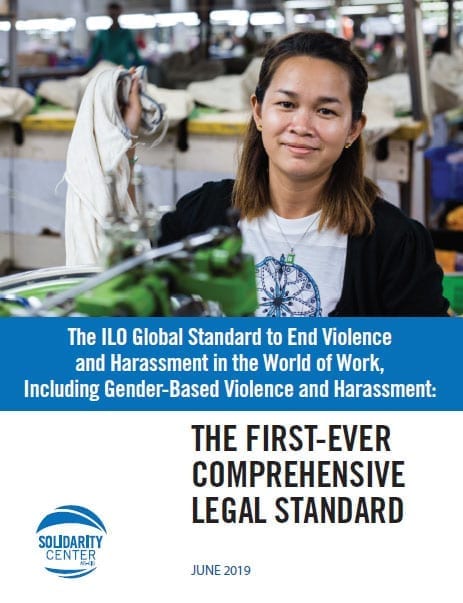
ILO GBV at Work Standard: First-Ever Comprehensive Legal Standard
A Solidarity Center legal analysis shows the proposed ILO convention on gender-based violence and harassment at work is necessary because no global binding instrument exists that comprehensively addresses violence and harassment in the world of work, including...
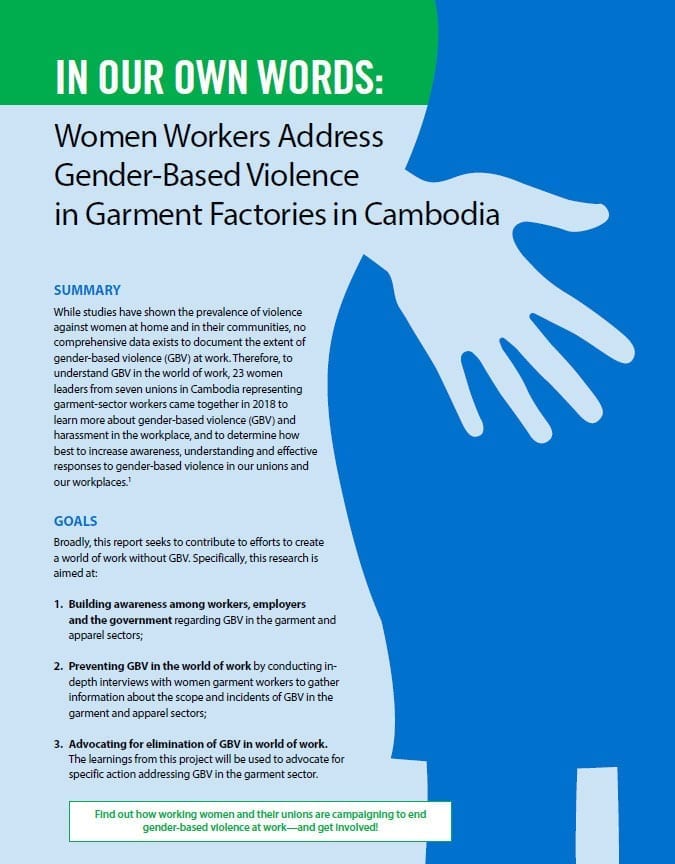
In Our Own Words: Women Workers Address Gender-Based Violence in Garment Factories in Cambodia
While studies have shown the prevalence of violence against women at home and in their communities, no comprehensive data exists to document the extent of gender-based violence (GBV) at work. To better understand GBV at work, 23 activists and female leaders of workers...

